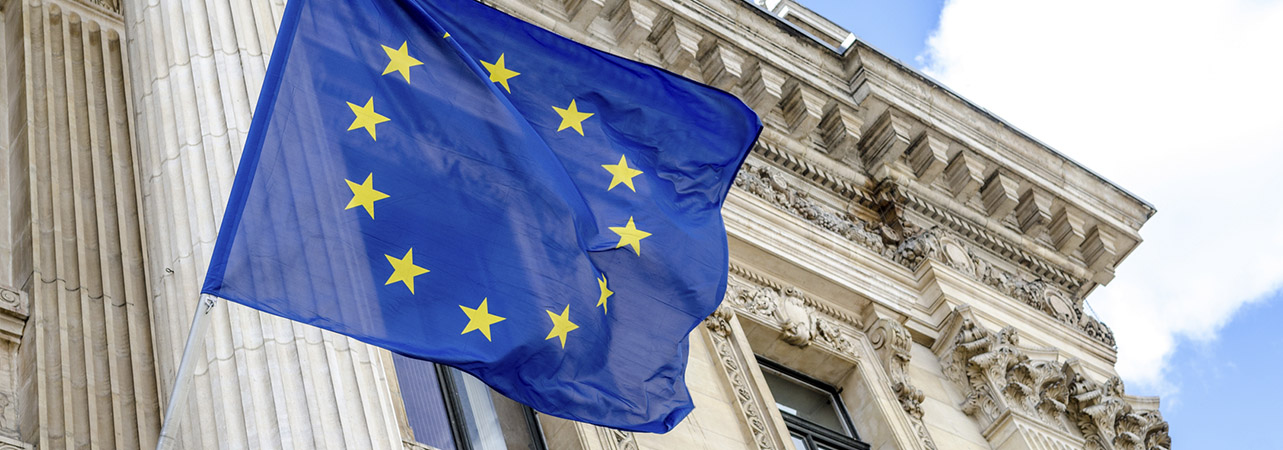The eurozone’s economy remained sluggish in December as improved activity in the services sector failed to mitigate a deepening contraction in the manufacturing sector. Output amongst the region’s manufacturers posted its sharpest decline since October 2012 during the month, undermined by Germany’s ongoing slowdown.
- The Bundesbank painted a downbeat picture of Germany’s outlook
- Christine Lagarde took over as ECB President
- Eurozone inflation is expected to remain below-target in 2020
To view the series of market updates through December, click here
The eurozone’s economy remained sluggish in December as improved activity in the services sector failed to mitigate a deepening contraction in the manufacturing sector. Output amongst the region’s manufacturers posted its sharpest decline since October 2012 during the month, undermined by Germany’s ongoing slowdown. Germany’s economy is continuing to put a brake on the eurozone as a whole, according to IHS Markit: although optimism improved in Europe’s largest economy, business activity in Germany posted its fourth consecutive monthly decline, while factory production dropped at one of its steepest rates for seven years. Growth in new factory orders across the eurozone remained negative and new job creation has fallen to its lowest level for more than five years. IHS Markit warned that further deterioration in manufacturing jobs could start to spill over into the services sector.
“Once and for all, I’m neither dove nor hawk” (ECB President Christine Lagarde)
Meanwhile, Germany’s central bank believes the country’s anaemic economic growth is likely to continue into 2020. Export activity is expected to rally, but the Bundesbank believes that consumers will remain cautious, dampened by slow growth in disposable income. Generally, the Bundesbank believes that risks to economic growth are tilted to the downside and could extend the downturn in Germany’s industrial sector. The Dax Index edged up by 0.1% in December, but rose by 25.5% over 2019 as a whole.
December saw Christine Lagarde preside over her first policy meeting after taking over as President of the European Central Bank (ECB). Policymakers expect to maintain interest rates at their current historic lows, but President Lagarde said that a forthcoming review of the central bank’s strategy could result in some expansion of the measures used to support growth and achieve price stability, although the current suite of stimulus measures are likely to remain in place for now.
The ECB predicts the eurozone’s economy will grow by 1.2% in 2019 and 1.1% in 2020, while inflation is forecast to reach 1.2% this year and 1.1% next year – considerably below the central bank’s target of below but close to 2%.
President Lagarde emphasised “Once and for all, I’m neither dove nor hawk, and my ambition is to be this owl, that is often associated with a little bit of wisdom”, and asked observers not to “over-interpret … second-guess … (or) cross-reference” her actions with those of her predecessors, saying “I’m going to be myself and therefore probably different”.
A version of this and other market briefings are available to use in our newsletter builder feature. Click here





